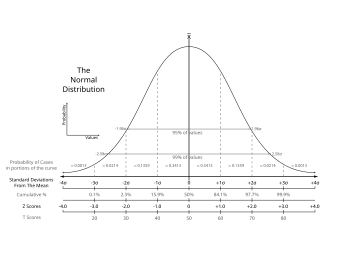If you believe in the luck of the draw, the turn of a card, the spin of a wheel; if you believe in the leaves in your teacup, the lines on your palm, or the numbers in your fortune cookie; if you believe in fate or a psychic or the neighbor’s black cat, then you are all the poorer for it — perhaps not spiritually, but certainly financially.
From the Telegraph:
Strange as it sounds, a serious study has been undertaken by academics into the link between people’s propensity to trust in luck, or fate – and their financial success.
And it has concluded the less faith someone places in luck, fate or some other “external factor”, the more wealth they are likely to accumulate.
Some might say the conclusion is commonsense but the report – produced by three academics at the University of Mebourne in Australia – even came up with a figure of AUS$150,000 (£82,000), which was the difference over four years between “households who believe fate will determine their future” and “households that believe they can shape their own destiny.”
The report, here, titled “Locus of control and savings”, splits psychological profiles into two groups, those with either an “internal” or “external” “locus” of control. The latter are people who believe that fate, or luck – or other people – are the determining force in shaping their lives. Those with an “internal locus of control” are those who are “strong believers in their ability to shape their own destiny.”
The survey then linked pshychological measures of behaviour to national savings data. “We find that households in which the reference person has an internal locus of control save more both in terms of levels and as a percentage of their permanent incomes than do households with external reference persons.”
It arrived at a precise financial measure, saying: “over a four year period households with a strong sense of shaping one’s destiny are on average $150,000 better off, and save 7.7% more of their income.”
The authors claimed that although their work relied on Australian data, it would reflect trends in other developed economies.
The work is one of a growing number of studies into what motivates saving, the type of people most likely to save – and how governments can stimulate more saving.
Read the entire article here.

 [div class=attrib]From Rationally Speaking:[end-div]
[div class=attrib]From Rationally Speaking:[end-div]